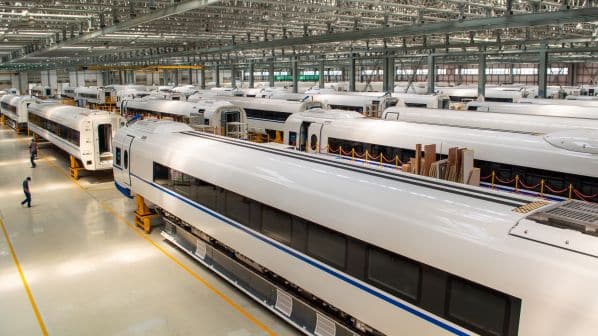EUROPEAN industry has learned over the last few years to expect the unexpected. The world has changed, and success now depends on being adaptable and prepared.
Businesses on the continent have faced a double blow - manoeuvring in an inflationary environment due to an energy shock while adapting to the new reality of geopolitical tensions, especially due to the Russian aggression against Ukraine.
With these disruptions, businesses have turned to European policymakers to build the frameworks and deliver regulations that remove the burden on business and boost trade diversification in turbulent times.
Europe is positioning itself to become more autonomous and “self-reliant,” which is strategically understandable.
But the EU has been collaborating with industry (including with the input of Unife) even before these recent developments, in order to remedy increasing market accessibility and competition issues worldwide. This resulted in adopting new autonomous trade tools such as the International Procurement Instrument (IPI) and the Foreign Subsidies Regulation (FSR).
These trade tools have been developed firstly to ensure that EU companies have equal access to third countries’ markets on public procurement and secondly, to address unfair competition practices in the EU market caused by subsidies granted to non-EU entities.
Such trade instruments are of particular importance to Unife members given their status as top exporters in world markets. Yet their ability to do so effectively is impacted by the increasing lack of a level playing field with competing Asian companies.
For the sake of the rules-based global order, a range of trade norms must be protected. If this does not happen, a challenging environment for European business awaits. As European Commission president, Ms Ursula von der Leyen mentioned in her State of the Union speech on September 13, “competition is only true as long as it is fair.”
The principles of open markets and free trade must therefore be preserved and fairness ensured. Global trade is vital to the success of the global railway sector, which goes beyond just the sourcing of parts and the sharing of technologies.
The European rail supply sector is a €176.6bn industry, which employs 400,000 people, and is active in over a hundred markets across the world.
It is very easy to single out nations for failing to meet Free Trade Agreement (FTA) commitments on matters such as public procurement. Dialogue and political willingness are essential to resolve these issues and to find concrete solutions. This will help to boost even further the presence of EU businesses working overseas while benefitting international projects by providing access to the world-leading technologies and solutions provided by European suppliers. Without this kind of resolution, the various trade agreements that took many years to negotiate may be seen as lost opportunities for the EU.
We are ultimately all trying to achieve the same thing no matter where we are from - prosperity for both industry and wider society. Unife believes at a policy level the necessary instruments are now in place. However, they also need to pass the “practice test” by appropriately balancing the administrative burden on industry with their actual effectiveness in delivering growth and prosperity for the industry.
Understanding the rules is important and this is what the industry should take time to do.
This entire process has been important to illustrate to EU policymakers the challenges European business face on a day-to-day basis. Ultimately, a level playing field is essential for free trade to take place. Rebuilding trust in economic cooperation and trade is vital to achieving this, especially as we all face the uncertainty of tomorrow.

